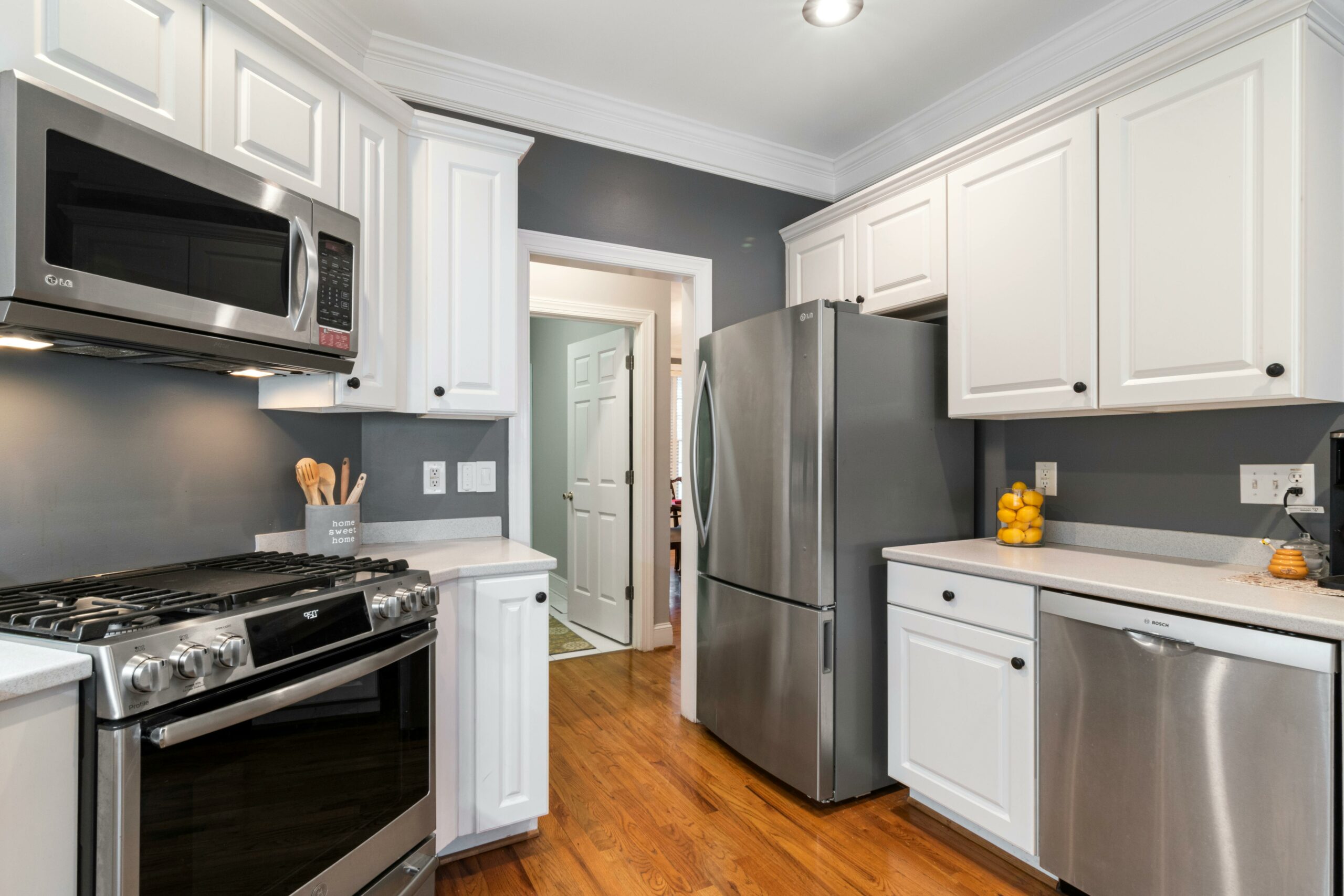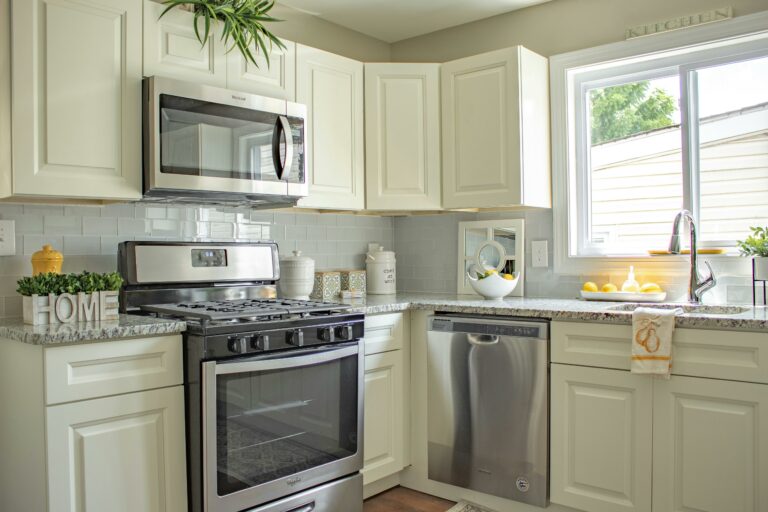Elevate Your Kitchen Design with Smart Appliances: The Future of Cooking
The kitchen has always been the heart of a home, where delicious meals are prepared and memories are made. But imagine a kitchen that can anticipate your needs, simplify your cooking process, and enhance your overall culinary experience. Enter smart kitchen appliances, the future of cooking. With advancements in technology, these intelligent devices are revolutionizing the way we cook and interact with our kitchens.
From smart refrigerators that can create shopping lists and suggest recipes to smart ovens that can be controlled remotely from your smartphone, these appliances provide convenience, efficiency, and an improved cooking experience. But what exactly are smart kitchen appliances, and why are they becoming increasingly popular? This article will delve into the significance of Kitchen Design with smart appliances, market insights and trends, the advantages they offer, and the top brands leading the way in this exciting field.
So, if you’re ready to elevate your kitchen design with smart appliances which can take your cooking skills to the next level, join us as we explore everything you need to know about smart kitchen appliances. It’s time to embrace the future of cooking and transform your kitchen into a smart, efficient, and cutting-edge culinary hub. Let’s dive in!
Table of Contents
Significance Kitchen Design with Smart Appliances
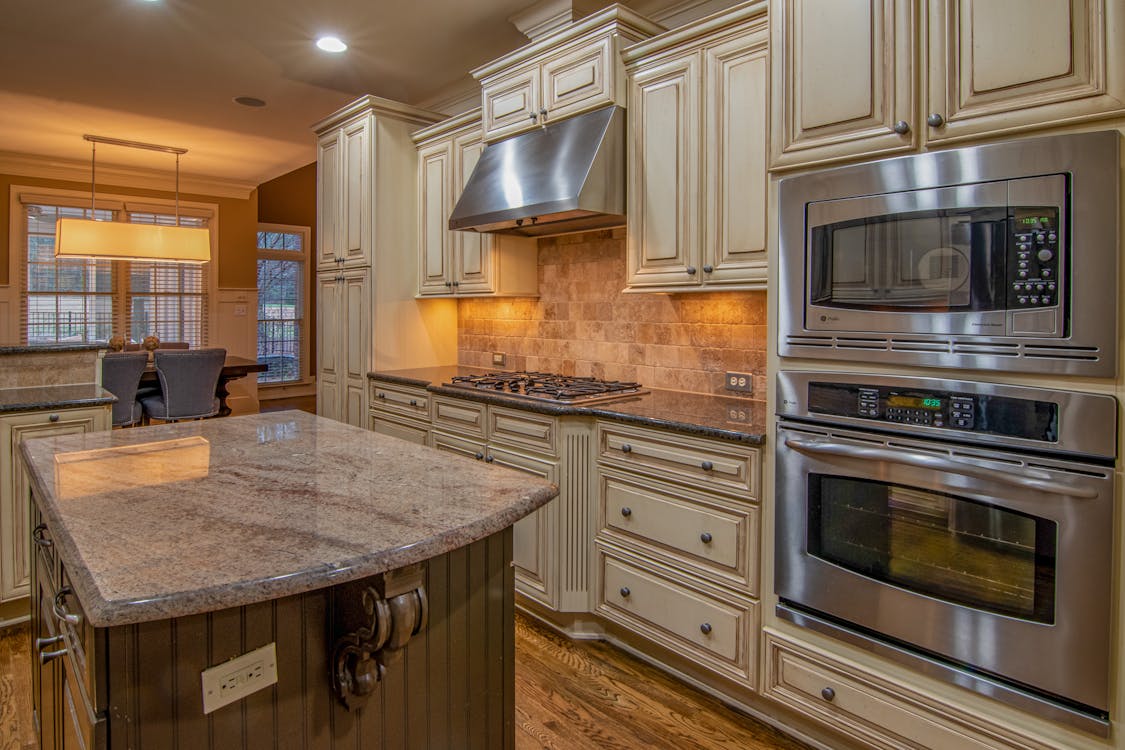
The rapid advancement of technology has revolutionized almost every aspect of our lives, and the kitchen is no exception. Smart kitchen appliances have emerged as a popular trend, offering convenience, efficiency, and a touch of futuristic charm to our cooking routines. These appliances come equipped with cutting-edge features, allowing us to control and monitor them remotely through our smartphones or other smart devices. But why all the buzz around smart kitchen appliances? Let’s delve into their significance and explore their potential impact on our daily lives.
Projected Market Valuation
According to recent market research, the global smart kitchen appliances market is poised to witness tremendous growth in the coming years. By the year 2030, experts project the market to reach a staggering valuation of USD 138.22 billion. This massive growth can be attributed to several factors, including advancements in technology, rising disposable incomes, and the desire for a more streamlined and connected lifestyle.
Growth Potential
Smart kitchen appliances offer a range of features that cater to the needs and preferences of modern consumers. From smart refrigerators that let you peek inside without opening the door to smart ovens that can cook your meal to perfection with just a tap on your smartphone, these appliances are a game-changer in the kitchen.
Here are some key factors to the growth potential of smart kitchen appliances:
- Convenience: Smart kitchen appliances bring convenience to a whole new level. With features like voice control, remote monitoring, and automated settings, they simplify everyday tasks in the kitchen. Imagine preheating your oven on your way home from work or asking your refrigerator to remind you of your grocery list while you’re at the store. Smart appliances make it a reality.
- Efficiency: These appliances are designed to optimize energy usage and minimize waste. Smart refrigerators, for instance, can adjust their temperature settings based on the contents inside, ensuring optimal freshness while reducing energy consumption. Smart dishwashers can intelligently choose the most efficient washing cycle based on the load, saving both water and energy.
- Personalization: Smart kitchen appliances offer a high level of customization. With features like personalized cooking presets and recipe recommendations based on your dietary preferences, they cater to individual needs and make cooking a more enjoyable experience.
- Connected Ecosystem: One of the most significant advantages of smart kitchen appliances is their ability to integrate seamlessly into a connected ecosystem, allowing different devices to communicate with each other. This means your smart refrigerator can communicate with your smart grocery list app, automatically adding items you need to restock. It’s all about creating a synchronized and hassle-free kitchen environment.
The Wi-Fi segment currently dominates the smart kitchen appliance market, accounting for a significant market share of 77.3% in 2020. However, as technology continues to evolve, we can expect to see even more innovative appliances entering the market, offering advanced features and enhancing our cooking experiences.
From saving time and energy to offering personalized cooking experiences, smart kitchen appliances have the potential to transform our daily lives in remarkable ways. As technology continues to evolve, we can expect even more exciting advancements in this space, making our kitchens smarter and more efficient than ever before.
Market Insights and Kitchen Trends
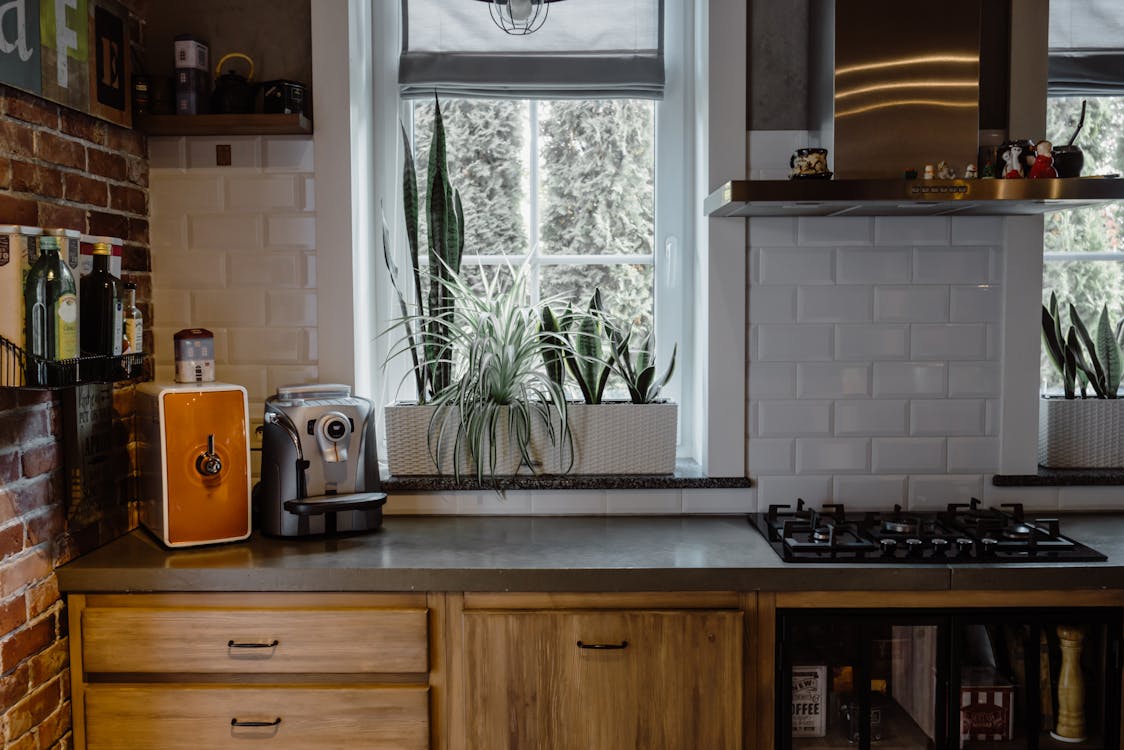
Smart kitchen appliances have become increasingly popular in recent years, as more and more consumers recognize the convenience and efficiency they offer in the modern kitchen. With the advancements in technology, these appliances have transformed the way we cook, clean, and manage our kitchens. In this section, we will explore some market insights and trends that are shaping the smart kitchen appliances industry.
North America and Europe Market Projections
According to market projections, the North America and Europe smart kitchen appliances market is expected to experience significant growth in the coming years. By 2030, it is estimated to reach a staggering USD 5595.05 Million. This growth can be attributed to several factors, including:
- Increasing adoption of smart home technologies: As smart home ecosystems become more prevalent, consumers are looking to incorporate smart appliances into their kitchens. The ease of controlling these appliances through voice commands or smartphone apps is a major draw.
- Growing emphasis on energy efficiency: With a focus on sustainability and reducing energy consumption, smart kitchen appliances offer advanced features that help in energy conservation. From smart refrigerators that optimize cooling to smart ovens that adjust cooking times based on the dish, these appliances are designed to be more energy-efficient than their traditional counterparts.
- Convenience and time-saving features: Smart kitchen appliances are equipped with innovative features that make cooking and kitchen management easier and more efficient. From refrigerators that can create shopping lists based on their contents to smart coffee makers that can be programmed to brew coffee at a specific time, these appliances save valuable time and effort.
Rapid Market Growth
The global smart kitchen appliances market has been experiencing rapid growth in recent years. In 2018, the market size was valued at USD 14287.9 million, and it is expected to reach USD 37889.1 million by 2026, growing at a CAGR of 13.0%. This growth can be attributed to the following factors:
- Technological advancements: As technology continues to evolve, smart kitchen appliances are becoming more advanced and sophisticated. Manufacturers are incorporating features such as touchscreens, voice control, and IoT connectivity to enhance the overall user experience.
- Changing consumer lifestyles: With busy schedules and a growing preference for convenience, consumers are turning to smart kitchen appliances to simplify their daily routines. These appliances offer automation, remote access, and personalized settings that align with the fast-paced modern lifestyle.
- Increasing disposable income: Rising disposable income levels, especially in emerging economies, have contributed to the increased adoption of smart kitchen appliances. As consumers have more purchasing power, they are more willing to invest in technologically advanced products that offer convenience and efficiency.
In conclusion, the market for smart kitchen appliances is poised for significant growth in North America, Europe, and globally. The increasing demand for convenience, energy efficiency, and advanced features is driving the adoption of these appliances. As technology continues to advance and consumer preferences evolve, we can expect even more innovative and smart kitchen appliances to enter the market in the years to come.
Advantages of Smart Kitchen Appliances
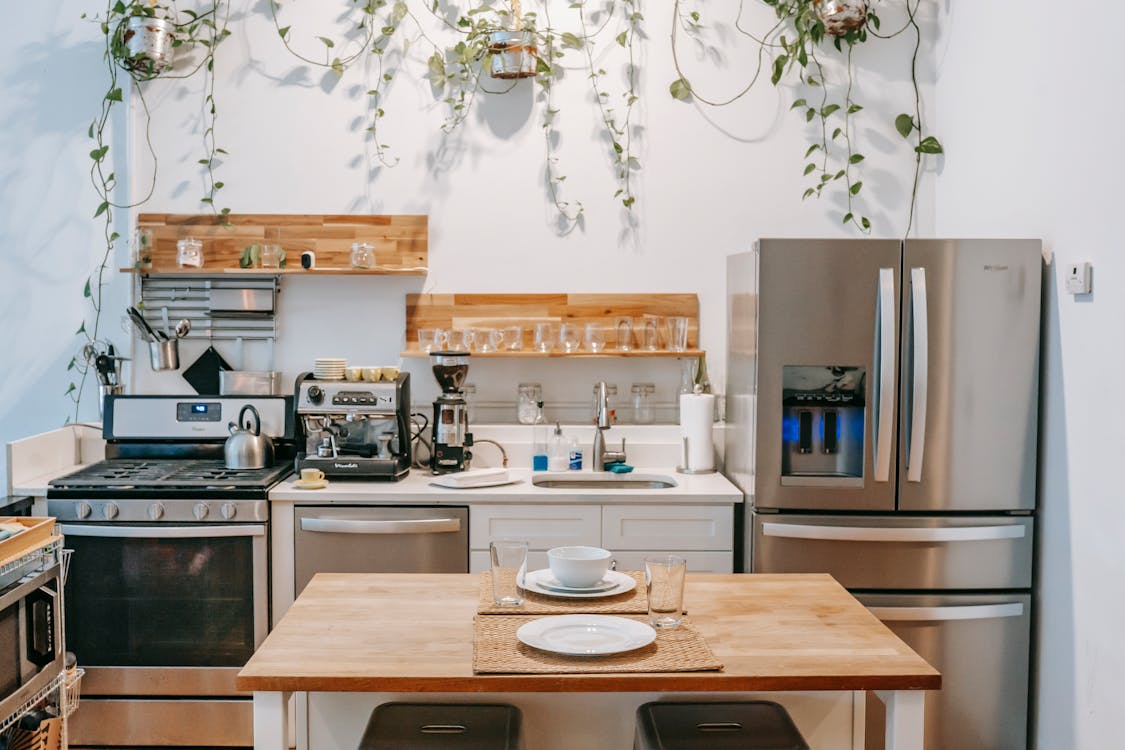
Imagine coming home after a long day at work. You’re tired, hungry, and the last thing you want to do is spend hours in the kitchen preparing a meal. This is where smart kitchen appliances come in. With their advanced technology and features, they can make your cooking experience more convenient, efficient, and enjoyable. Let’s explore some of the advantages of these innovative appliances.
Convenience and Efficiency
One of the major advantages of smart kitchen appliances is the convenience they offer. With just a tap on your smartphone or a voice command to your virtual assistant, you can control and monitor your appliances from anywhere in your home. Forgot to turn off the oven? No problem. Simply use your smartphone app to do so, saving you time and energy.
Moreover, smart appliances are designed to streamline your cooking process. They come with pre-programmed settings and cooking modes that take the guesswork out of preparing your favorite dishes. Whether it’s a slow cooker that automatically adjusts the temperature or a smart refrigerator that suggests recipes based on the ingredients inside, these appliances help you achieve consistent results every time.
It’s not just about convenience; smart kitchen appliances also make your kitchen more energy-efficient. Many of these appliances are equipped with sensors and automation features that optimize their performance. For example, a smart dishwasher can assess the dirtiness of your dishes and adjust the water and energy usage accordingly, saving you money on your utility bills.
Improved Cooking Experience
Cooking can be a creative and enjoyable activity, but it can also be overwhelming, especially for those who are new to the kitchen. Smart kitchen appliances can enhance your cooking experience in several ways:
- Recipe Recommendations: Some smart appliances, like smart ovens or cooking ranges, come with integrated recipe libraries. You can browse through a variety of recipes, select one that catches your eye, and let the appliance take care of the rest. It will set the temperature, time, and cooking mode automatically, guiding you through the cooking process step-by-step.
- Real-Time Monitoring: Many smart appliances have built-in cameras and sensors that allow you to keep an eye on your food as it cooks. Whether you’re in the living room or running errands outside the house, you can check the status of your meal through your smartphone app. No more worrying about overcooking or undercooking your dishes.
- Smart Meal Planning: Smart refrigerators can track the items inside and send notifications when groceries are running low. They can even suggest recipes based on the ingredients you have on hand, making it easier to plan your meals and reduce food waste.
In conclusion, smart kitchen appliances bring convenience, efficiency, and an improved cooking experience to your home. They save you time, energy, and offer creative ways to enhance your culinary skills. With the latest advancements in technology, these appliances are becoming more accessible and affordable, allowing you to transform your kitchen into a smart and efficient hub. So why not embrace the future of cooking and make your life in the kitchen easier and more enjoyable?
Also Read : Efficient Kitchen Layouts That Maximize Space and Functionality
Top Smart Kitchen Appliances
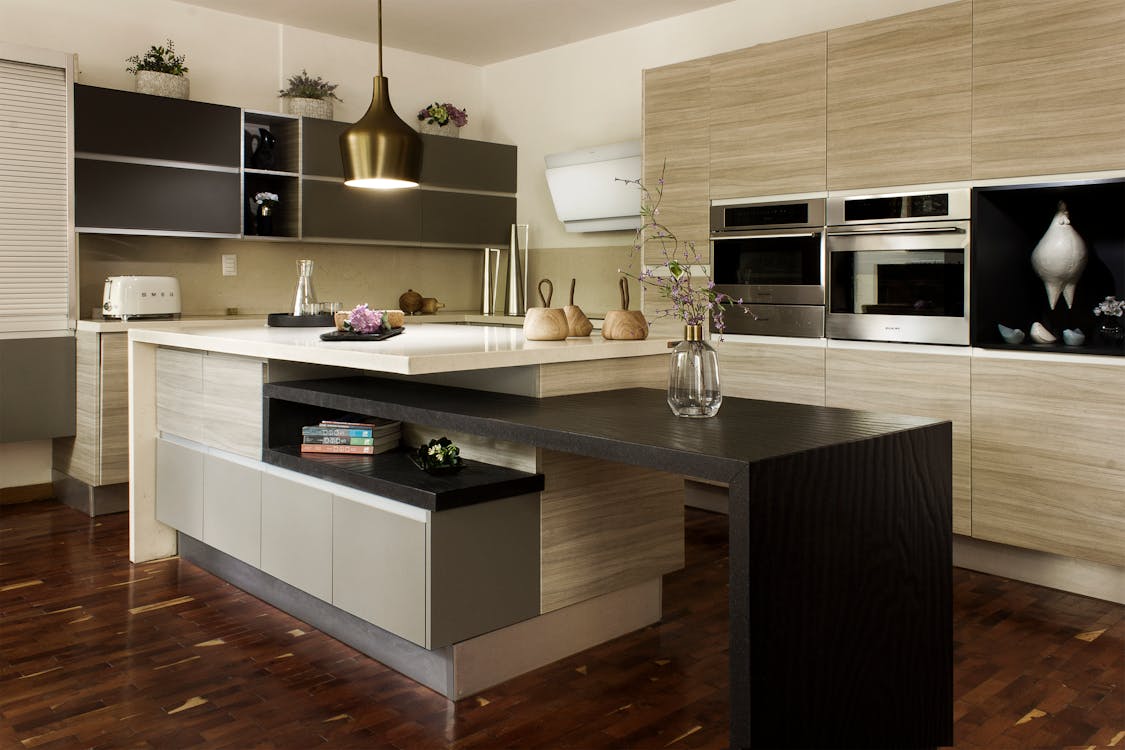
Smart kitchen appliances are revolutionizing the way we cook and interact with our kitchens. From refrigerators that can keep track of your groceries to ovens that can be controlled remotely, these innovative devices offer convenience, efficiency, and a touch of luxury to the heart of your home. In this article, we will explore some of the top smart kitchen appliances available on the market today.
Smart Refrigerators
Smart refrigerators are designed to make your life easier and more organized. Here are some of the key features that set them apart:
- Built-in cameras: Ever wondered what’s inside your fridge when you’re at the grocery store? With built-in cameras, you can check the contents of your fridge from your smartphone, ensuring you never forget to pick up an essential item.
- Inventory management: Smart refrigerators can track the expiration dates of your groceries and send you notifications when it’s time to restock. They can even suggest recipes based on the ingredients you have on hand.
- Temperature control: With precise temperature control, smart refrigerators help ensure that your food stays fresher for longer. Some models even have separate compartments optimized for different foods, such as fruits, vegetables, and meats.
Smart Ovens
Gone are the days of unpredictable cooking times and burnt dishes. Smart ovens offer a range of features that make cooking a breeze:
- Remote control: Imagine preheating your oven on your way home from work, so it’s ready to go as soon as you walk through the door. With remote control capabilities, you can start, stop, and adjust the temperature of your oven from your smartphone.
- Recipe assistance: Smart ovens can provide step-by-step recipe guidance, adjusting cooking times and temperatures automatically. Say goodbye to undercooked or overcooked meals!
- Voice control: Some smart ovens are compatible with virtual assistants like Amazon Alexa or Google Assistant. Simply give a voice command, and your oven will start preheating or cooking according to your instructions.
Smart Cooktops
Cooking on a smart cooktop takes precision and convenience to a whole new level. Here’s what you can expect from these advanced appliances:
- Induction technology: Smart cooktops often use induction technology, which heats up your cookware directly, offering faster and more consistent heat distribution. This results in quicker cooking times and more precise temperature control.
- Built-in sensors: Smart cooktops can detect the size and shape of your cookware and adjust their heating zones accordingly. This ensures that all your pots and pans receive equal heat distribution.
- Safety features: Many smart cooktops have safety features such as automatic shut-off and child lock to prevent accidents and give you peace of mind while cooking.
Smart Dishwashers
Say goodbye to manually adjusting washing cycles and wondering if your dishes will come out spotless. Smart dishwashers offer a range of features that take the hassle out of cleaning up after a meal:
- Smart load sensing: Smart dishwashers can detect the number of dishes and their level of dirtiness, adjusting the water usage and cycle duration accordingly. This ensures optimal cleaning while conserving water and energy.
- Connectivity: Some smart dishwashers can be connected to your smartphone, allowing you to monitor and control the cleaning process remotely. Start a cycle when you’re away from home, and come back to sparkly clean dishes!
- Energy efficiency: Many smart dishwashers are designed to be energy-efficient, using sensors to determine the most efficient cycle for each load. This not only saves you money on utility bills but also helps reduce your environmental footprint.
In conclusion, investing in smart kitchen appliances can significantly enhance your cooking experience, save you time and energy, and bring a touch of modernity to your kitchen. Whether it’s a smart refrigerator that helps you keep track of your groceries or a smart oven that ensures perfectly cooked meals, these appliances are designed to streamline your cooking process and make your life more convenient. Upgrade your kitchen with these top smart appliances and embark on a culinary journey like never before!
Integration with Smart Home System

Smart home technology has quickly become a mainstay in households around the world. With the Internet of Things (IoT) revolutionizing the way we interact with our homes, it’s not uncommon to find homeowners incorporating smart devices into their living spaces. But what exactly is smart home integration, and how does it work with your existing systems?
What is Smart Home Integration?
Smart home integration refers to the process of connecting various smart devices, such as thermostats, lighting systems, security cameras, and voice assistants, to work together seamlessly. It involves integrating these devices with a centralized hub or control system, allowing homeowners to manage and control multiple aspects of their home with ease.
The Benefits of Smart Home Integration
Integrating smart devices into your home can bring a myriad of benefits, including:
- Convenience and Ease of Use: With smart home integration, you can control and automate your devices from a single interface or even through voice commands. Adjusting the lights, setting the temperature, or locking the doors can now be done with a simple tap or voice command.
- Energy Efficiency: Smart home integration allows for better management of energy consumption. You can program your devices to turn off when not in use, adjust the temperature based on occupancy, and receive energy usage reports to make informed decisions on reducing energy waste.
- Enhanced Security: By integrating security cameras, door locks, and motion sensors, you can monitor and protect your home more effectively. Receive real-time notifications of any suspicious activity, remotely lock or unlock doors, and even simulate occupancy while you’re away.
- Customization and Personalization: Smart home integration gives you the freedom to customize your home automation setup according to your needs and preferences. You can create schedules, routines, and personalized scenes to match your lifestyle and make your home truly smart.
Integrating with Popular Smart Home Systems
Thankfully, smart home integration doesn’t mean starting from scratch with all new devices. Many popular smart home systems allow compatibility with a wide range of third-party devices. Here are a few notable systems and platforms that seamlessly integrate with various smart devices:
| Smart Home System | Integration Capabilities |
|---|---|
| Google Nest | Works with Google Assistant, supports a wide range of smart devices, and can be controlled through the Google Home app. |
| Amazon Alexa | Compatible with a vast ecosystem of devices, allowing voice control through Alexa-enabled devices like Echo speakers. |
| Apple HomeKit | Offers a secure and centralized platform for smart home integration, accessible through the Home app and Siri voice commands. |
| Samsung SmartThings | Allows integration with a wide range of devices, supporting both Z-Wave and Zigbee protocols, and can be controlled via the SmartThings app. |
Conclusion
Smart home integration opens up a world of possibilities, making your home smarter, more efficient, and secure. Whether you’re just starting to dip your toes into smart home technology or looking to expand your existing setup, integrating with popular smart home systems will ensure compatibility and ease of use. So, go ahead and embrace the future of home automation with smart home integration!
Frequently Asked Questions
- What are smart appliances in the context of smart kitchen design?Smart appliances are kitchen appliances that are equipped with advanced technology and connectivity features. They can be controlled remotely through smartphones or voice assistants and offer additional functionalities like recipe suggestions, energy monitoring, and interactive touchscreens.
- What are the benefits of using smart appliances in the kitchen?Using smart appliances in the kitchen offers several benefits, including convenient control and monitoring, energy efficiency, time-saving features, improved safety with smart sensors, and access to recipe suggestions and cooking tips.
- Which kitchen appliances can be upgraded with smart features?Various kitchen appliances can be upgraded with smart features, such as refrigerators, ovens, cooktops, dishwashers, coffee makers, and even small appliances like blenders and toasters.
- Do I need a smart home system to use smart appliances in my kitchen?While some smart appliances can be used independently via smartphone apps, others may require integration with a smart home system like Amazon Alexa or Google Home for seamless automation and control.
- Are smart appliances more expensive than traditional appliances?Smart appliances generally come at a higher price point compared to traditional appliances due to their advanced technology and additional features. However, the cost may vary depending on the brand, model, and specific functionalities of the smart appliance.

